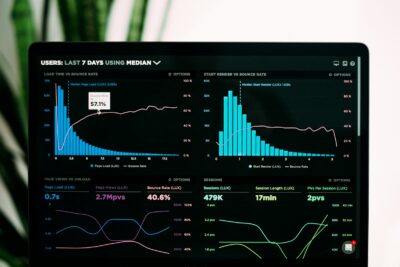Unlocking Sales Potential through Integrated Systems
Unlock the potential of your sales forecasting with ERP-CRM integration. Streamline operations, enhance customer insights, and drive growth with agile decision-making. Learn how integrated systems maximize efficiency, deliver cost savings, and enable targeted marketing for sustained success in a dynamic business landscape.
In the dynamic landscape of modern business, the ability to accurately forecast sales is paramount to success. Enterprises are constantly seeking innovative solutions to optimize their sales processes and gain a competitive edge. One such solution gaining prominence is the integration of Enterprise Resource Planning (ERP) and Customer Relationship Management (CRM) systems. This integration not only streamlines operations but also enhances sales forecasting accuracy to unprecedented levels.
Maximizing Efficiency and Cost Savings
Efficient resource allocation is a cornerstone of successful sales forecasting, and ERP-CRM integration delivers significant cost savings through optimized processes. By automating routine tasks and eliminating manual data entry errors, integrated systems reduce operational inefficiencies and free up valuable resources for strategic initiatives. Furthermore, by consolidating data from disparate sources into a single, unified platform, businesses can eliminate redundancy and streamline workflows, resulting in a leaner and more agile organization. This enhanced efficiency not only drives down operating costs but also improves overall productivity, allowing teams to focus on value-added activities that drive sales and revenue growth.
Enhanced Customer Insights for Targeted Marketing
Understanding customer behavior and preferences is essential for crafting effective marketing campaigns that resonate with target audiences. ERP-CRM integration provides businesses with unparalleled access to customer data, enabling them to segment their audience based on demographics, purchase history, and engagement patterns. Armed with these insights, marketers can tailor their messaging and offerings to meet the specific needs and preferences of different customer segments, increasing the effectiveness of their campaigns and driving higher conversion rates. Additionally, integrated systems facilitate real-time tracking of marketing performance metrics, allowing businesses to fine-tune their strategies on the fly and maximize ROI.
Seamless Scalability for Future Growth
As businesses expand and evolve, scalability becomes a critical consideration in their choice of technology solutions. ERP-CRM integration offers seamless scalability, allowing organizations to easily adapt to changing market dynamics and increasing customer demands. Whether expanding into new markets, launching new product lines, or accommodating growing customer bases, integrated systems provide the flexibility and scalability needed to support business growth without disruption. This scalability extends beyond just infrastructure to encompass processes and workflows, ensuring that businesses can scale their operations efficiently and sustainably while maintaining high levels of performance and customer satisfaction.
The Power of ERP-CRM Integration
Streamlined Data Flow: ERP systems are the backbone of organizational operations, managing everything from inventory and procurement to finance and human resources. On the other hand, CRM systems focus on customer interactions and relationships. By integrating these two systems, businesses can ensure seamless data flow between departments, breaking down silos and fostering collaboration. This unified data ecosystem provides invaluable insights into customer behavior, preferences, and buying patterns, which are instrumental in forecasting future sales trends.
Customer-Centric Approach: One of the key advantages of ERP-CRM integration is its ability to place the customer at the center of business operations. By harnessing data from CRM platforms, such as customer feedback, purchase history, and communication logs, alongside ERP data on inventory levels, production schedules, and market trends, businesses can develop a comprehensive understanding of customer needs and market demands. This customer-centric approach allows for personalized sales strategies and targeted marketing efforts, resulting in higher conversion rates and customer satisfaction.
Agile Decision-Making: In today’s fast-paced business environment, agility is crucial for staying ahead of the curve. ERP-CRM integration equips organizations with real-time data and analytics, empowering decision-makers to respond swiftly to changing market conditions and customer preferences. Whether adjusting inventory levels based on demand forecasts or launching tailored marketing campaigns in response to emerging trends, integrated systems enable agile decision-making that drives business growth and resilience.
Future Outlook: Leveraging Technology for Sales Success
The role of technology in sales forecasting is evolving rapidly, with emerging trends such as Artificial Intelligence (AI), Blockchain, and the Metaverse reshaping the business landscape. These cutting-edge technologies offer new opportunities for enhancing sales forecasting accuracy and driving business success. AI-powered predictive analytics can analyze vast amounts of data to identify patterns and trends, enabling more precise sales predictions. Blockchain technology ensures data integrity and transparency, enhancing trust in the forecasting process. The Metaverse presents novel avenues for immersive customer experiences and targeted marketing campaigns, revolutionizing sales strategies.
Leadership and management skills are essential for navigating these technological advancements and harnessing their full potential. Executives and managers must embrace change management principles and invest in executive coaching services to develop the agility and vision needed to lead their organizations into the future of sales forecasting. Effective communication is also paramount, ensuring alignment across departments and fostering a culture of innovation and collaboration.
In conclusion, ERP-CRM integration stands as a cornerstone of modern sales forecasting, offering unparalleled insights and agility to businesses seeking to optimize their operations and drive growth. By leveraging the power of integrated systems and embracing emerging technologies, organizations can unlock their sales potential and chart a course towards sustained success in an ever-evolving marketplace.
#ERPCRMintegration #SalesForecasting #CustomerCentric #AgileDecisionMaking #LeadershipSkills #ArtificialIntelligence #Blockchain #Metaverse























